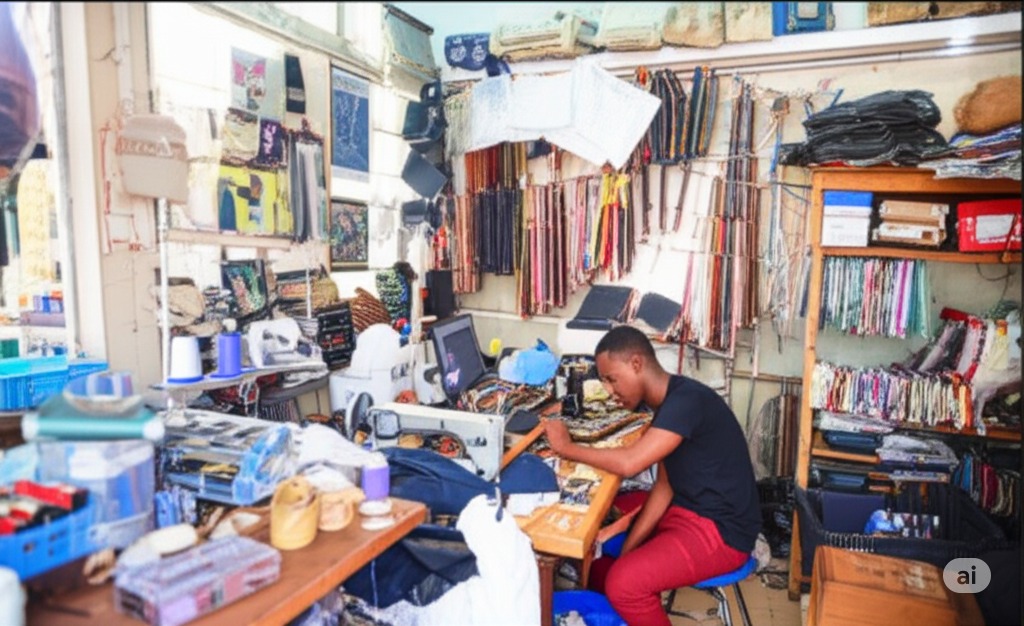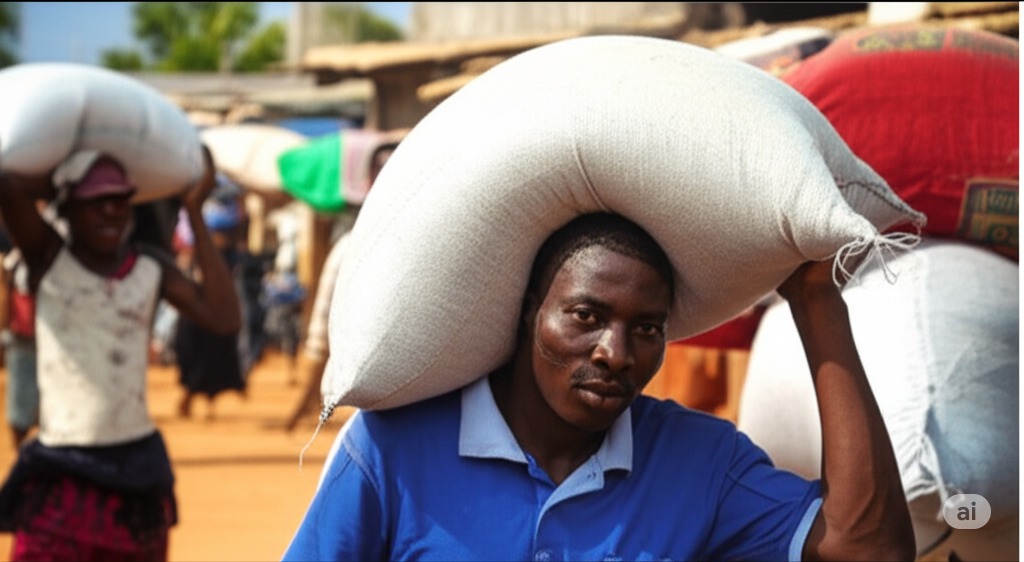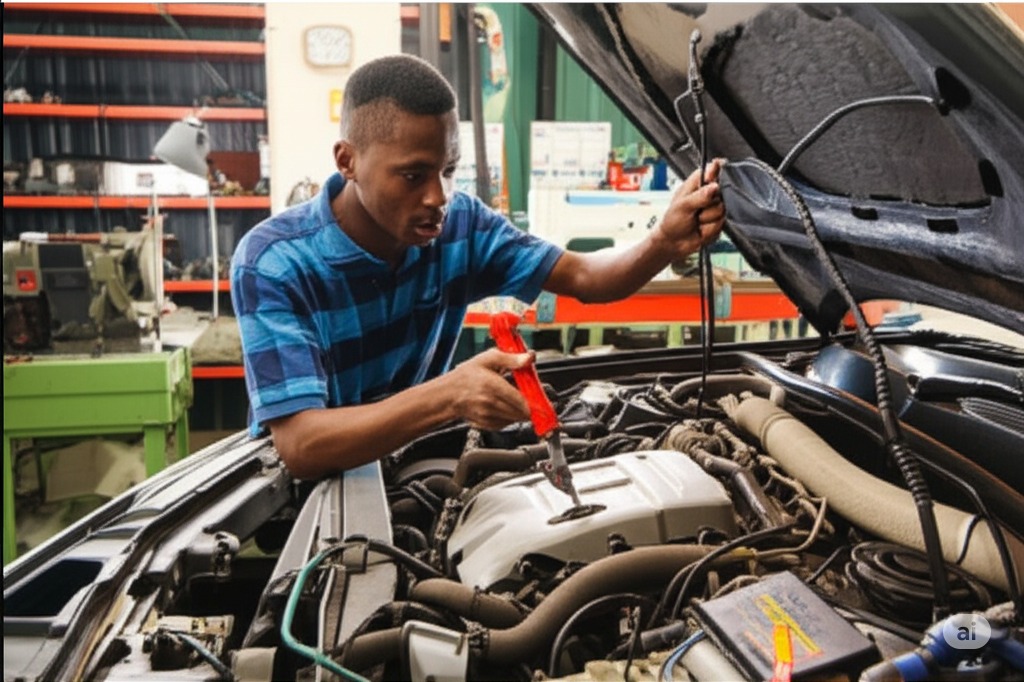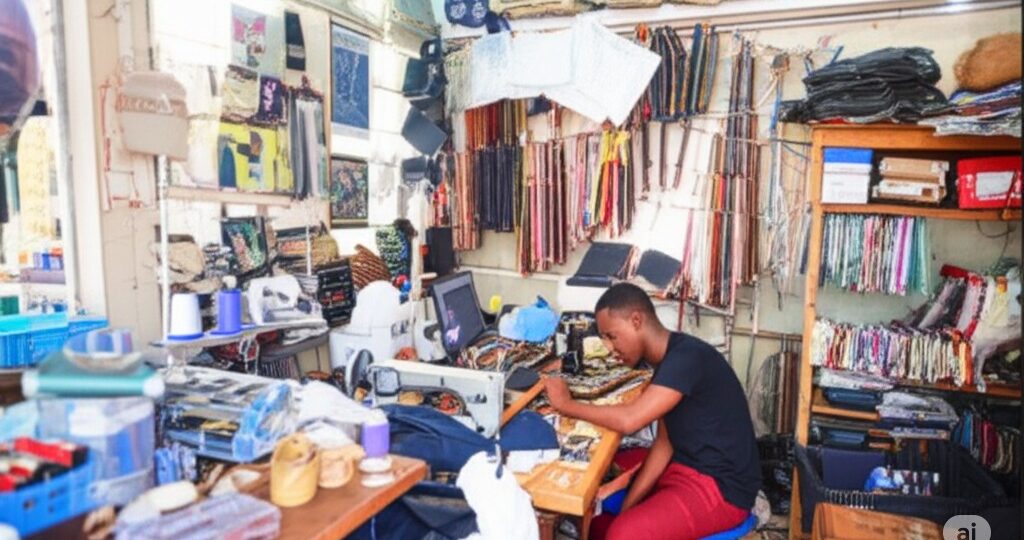Imagine a business school where tuition isn’t paid in crushing debt, but earned through years of dedicated service. A school where your professors aren’t just academics, but seasoned entrepreneurs who teach you everything from inventory management to human psychology, all while providing your living expenses. A school where graduation means not just a diploma, but a fully funded startup, a vast network, and a lifelong mentor.
This isn’t a Silicon Valley fantasy. This is the Igbo Apprenticeship System, known locally as “Igba Boi” or “Mgba Boi”, a centuries-old economic powerhouse rooted in the rich cultural heritage of southeastern Nigeria. While Western business models often glorify individualistic ambition and formal education, the Igbo system quietly champions community, trust, practical wisdom, and the audacious belief that true wealth creation is a collective endeavor, not just a personal quest. It’s Africa’s original MBA, and its list of graduates includes a significant number of Nigeria’s most successful entrepreneurs and, indeed, many billionaires.

The Unwritten Curriculum: Deconstructing “Igba Boi”
The heart of the Igbo apprenticeship system lies in a profound, unwritten contract between a successful business owner (the Oga, or master) and a young, often uneducated, male relative or community member (the Nwa Boi, or apprentice). This isn’t just about learning a trade; it’s a holistic immersion into the world of commerce, life skills, and character development.
Typically, a young man, sometimes as young as 10 or 12, leaves his village home to live with and work for an Oga in a bustling city or trading hub. This period, which can last anywhere from five to ten years (sometimes even longer, depending on the complexity of the business and the agreement), is rigorous and all-encompassing. The Nwa Boi starts from the bottom, learning every facet of the business: from sweeping floors and fetching goods to customer service, supply chain management, negotiation tactics, and meticulous accounting. He observes, absorbs, and actively participates in the daily grind of entrepreneurship.
More than just business acumen, the Nwa Boi learns discipline, resilience, and patience. He learns to manage resources, handle difficult customers, identify market trends, and navigate the unpredictable currents of trade. He sees firsthand how failures are handled, how opportunities are seized, and how trust is built and maintained within a network. This is where the “humanized” aspect comes in: the Oga isn’t just a boss; he often acts as a surrogate father, providing food, shelter, clothing, and even mediating family disputes. He instills values like honesty, hard work (aka rụọ ụka, literally “hand working without rest”), and community solidarity. The bond formed is often deeper than that of typical employer-employee relationships, evolving into a lifelong network of mentorship and mutual support.

One might walk into a bustling market in Onitsha, Lagos, or Aba, a symphony of commerce unfolding around you – the vibrant colours of fabrics, the aroma of spices, the rhythmic call-and-response of vendors and buyers – and witness this system in action. A young man diligently stacking goods, another expertly negotiating a price, all under the watchful, discerning eye of his Oga. Every transaction, every conversation, every problem solved, is a lesson. This is not learning from textbooks; this is learning from the raw, unpredictable, exhilarating classroom of the market itself.
The Power of “Idu Ego” and “Mkpọrọ Aka”: Graduation with a Startup
The truly revolutionary aspect of the Igbo Apprenticeship System, and what sets it apart from almost any other model of mentorship or education, is its “graduation” phase. At the end of the agreed term, the Oga is obligated to “settle” his Nwa Boi. This isn’t just a handshake and a pat on the back. This “settlement,” known as Idu Ego (literally “giving money” or “establishing money”), typically involves providing the now-matured apprentice with a significant amount of startup capital, sometimes even a fully stocked shop, or a well-placed introduction to suppliers and customers.
This seed capital is the crucial difference that transforms the Nwa Boi from a skilled worker into an independent entrepreneur. It’s the ultimate investment in human potential, a testament to the Oga’s belief in his apprentice and his commitment to the community’s economic expansion. The newly independent entrepreneur, now an Oga himself, is then expected to establish his own business – a process known as Mkpọrọ Aka (literally “planting the hand,” signifying establishing one’s own foothold).
Imagine a young man, perhaps 20 or 25, who started with nothing, no formal education, now equipped with years of practical experience, a powerful network, and the financial backing to launch his own enterprise. He’s not burdened by student loans or the desperate search for venture capital. He has a proven business model, a trusted mentor, and the inherent understanding of how to make his new venture thrive. This is the bedrock of the Igbo economic miracle.

This “settlement” is not an act of charity, but an ancient, culturally ingrained investment strategy. The Oga understands that by empowering his former apprentice, he is not only fulfilling a societal obligation but also strengthening his own network and expanding the overall economic pie. The Nwa Boi, now an Oga, will eventually train his own apprentices, perpetuating a self-sustaining cycle of wealth creation and knowledge transfer. It’s a robust, organic form of economic development that bypasses traditional aid models and banking systems, relying instead on trust, community capital, and entrepreneurial spirit.
Africa’s Original MBA: Why It Outperforms Western Models
In a world obsessed with Ivy League degrees and formal business education, the Igbo Apprenticeship System stands as a powerful, contrarian testament to alternative pathways to success. Here’s why it challenges and often outperforms Western business models:
- No Debt, Only Capital: Western MBAs can cost hundreds of thousands of dollars, leaving graduates saddled with crippling debt before they even begin their careers. The Igbo system, conversely, provides startup capital, setting entrepreneurs on a path to immediate productivity and wealth accumulation. It flips the script on financial burden, turning it into financial empowerment.
- Practicality over Theory: While an MBA offers theoretical frameworks and case studies, Igba Boi plunges apprentices directly into the live, messy, and exhilarating reality of business. Every day is a new case study, every customer interaction a practical lesson in human psychology, every market fluctuation a lesson in adaptability. The learning is experiential, ingrained through doing rather than just reading.
- Built-in, Lifelong Network: Graduates of the Igbo system inherit an invaluable network from their Oga. This isn’t just about professional connections; it’s a deep web of trust, mutual support, and shared history. In times of crisis, an Oga can call upon his former apprentices for assistance, and vice-versa. This community-driven network is far more resilient and responsive than any LinkedIn connection or alumni association.
- Accessibility and Inclusivity: The system breaks down barriers of formal education, social status, and financial background. It’s open to anyone with the will to learn and work hard, providing a viable economic pathway for individuals who might otherwise be excluded from traditional employment or educational opportunities. This makes it a formidable engine for poverty alleviation.
- Culturally Anchored Ethics: Beyond business skills, apprentices are schooled in Igbo ethics of trust, integrity, communal responsibility, and hard work. These values form the bedrock of sustainable business relationships, fostering an environment where deals are often sealed on trust rather than just legal contracts. The Oga‘s reputation, and by extension, the community’s, is tied to the success and ethical conduct of his former apprentices.
It’s no exaggeration to say that this system is widely credited with producing many of Nigeria’s most influential and successful entrepreneurs. While specific names and their exact net worth are fluid, it is an undeniable fact that a significant number of individuals who have built immense fortunes in trade, manufacturing, and various other sectors within Nigeria have humble beginnings in the Igba Boi system. Their stories are a testament to the system’s power – often starting with nothing but determination, learning the ropes, receiving their settlement, and then scaling their enterprises to national and even international prominence. Their wealth isn’t just personal; it often cascades down, creating jobs, supporting extended families, and reinvesting in communities.
A Model for Poverty Alleviation and Sustainable Wealth
The Igbo Apprenticeship System is more than just a business model; it’s a powerful engine for poverty alleviation and intergenerational wealth transfer. It provides a direct, accessible route out of poverty for countless young men who might otherwise be trapped in cycles of unemployment or low-wage labor. By equipping them with skills, capital, and a supportive network, it enables them to become wealth creators themselves, lifting not just themselves but their families and communities.
This constant regeneration of entrepreneurs and businesses contributes significantly to the Nigerian economy, forming a robust and resilient informal sector that often outpaces more formalized industries. It promotes an entrepreneurial spirit deeply embedded in the culture, valuing innovation, risk-taking, and community contribution. It’s a sustainable model because it’s inherently self-replicating, growing organically from the ground up, fueled by human capital and trust.
Challenges and The Future
While incredibly robust, the Igbo Apprenticeship System is not without its modern challenges. Urbanization, the rise of formal education, and evolving social structures mean it must adapt. There are discussions about formalizing some aspects, ensuring fairness, and protecting apprentices from exploitation. However, its core principles of mentorship, practical skill acquisition, and communal investment remain potent and relevant.
In a world grappling with economic inequality, youth unemployment, and the search for sustainable development models, the Igbo Apprenticeship System offers profound lessons. It reminds us that true wealth is not just about accumulating capital, but about cultivating human potential, fostering strong community bonds, and investing in a future where everyone has the opportunity to thrive. It’s a powerful testament to the ingenuity and resilience of Igbo culture, a truly indigenous MBA that has been silently producing billionaires and economic powerhouses for centuries.
Calling all readers! Have you witnessed the Igbo Apprenticeship System in action? Do you have personal stories or reflections on unique, community-driven economic models from your own culture? Share your thoughts and experiences in the comments below! Let’s celebrate the diverse pathways to success that exist beyond conventional norms.

